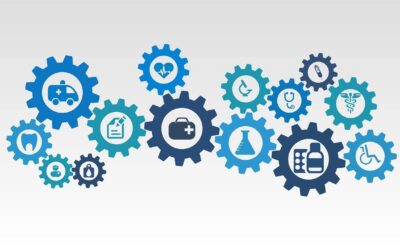Even though one of the key activities in requirements engineering are elicitation techniques such as interviews and workshops, there is very little information available on how we obtain information from these activities. Furthermore, the insights gained from these elicitation sessions need to be documented, which can be a highly time consuming task. In practise documentation is often scarce and writing these documents is not the most interesting work.
automatic reporting
By obtaining knowledge on identifying and extracting important information from these elicitation sessions, we can utilize the recent improvements to speech recognition and NLP fields to make progress in automatic reporting. This in turn allows experts to spend significantly less time on documentation and focus more on value adding activities. By automating or supporting the reporting process we could also decrease important information missed due to human error. This research links into the domain of pre-requirements traceability, with a focus specifically on speech driven requirements engineering.
In this research we aim to contribute to the scientific knowledge on knowledge acquisition through requirements elicitation.
The goals for this research include:
- Fill the knowledge gap on determining best practices in information elicitation.
- Identify how to recognize important information in elicitation sessions e.g feature requests.
- Provide empirical data for effectiveness of different elicitation techniques.
- Improve the speech recognition field for requirements elicitation purposes.
- Determine how to extract knowledge from elicitation transcripts to make progress in automatic reporting.
-
- Categorize the contents of requirements elicitation sessions.
- Determine tacit knowledge in elicitation sessions.
- Recognize discussed concepts in a requirements elicitation session and compare these to an ontology.
- Support generation of requirements by providing analysts with an overview of relevant information (highlighting).
- Automatically generate a preliminary user story set from design focused elicitation sessions.
- Recognize customisation and configuration needs from elicitation sessions
Through the cooperation between fizor. and Utrecht University, we gain access to real world knowledge elicitation recordings done by a set of professionals at a wide set of customers. This improves the level of realism in our work compared to experimental studies using students. It is not intended to limit or change the work method of the experts as we’d like to obtain a generalisable output that could be applied to any elicitation method in a similar context.



